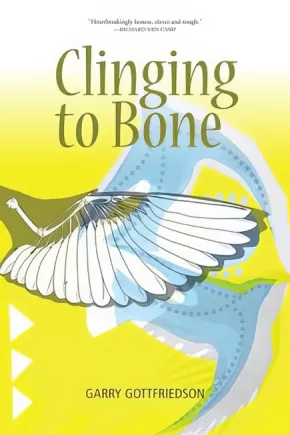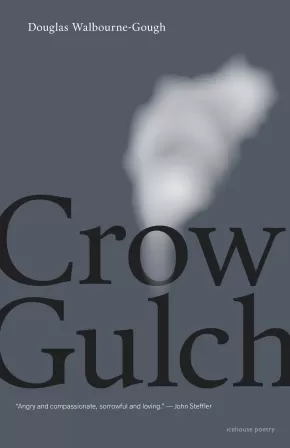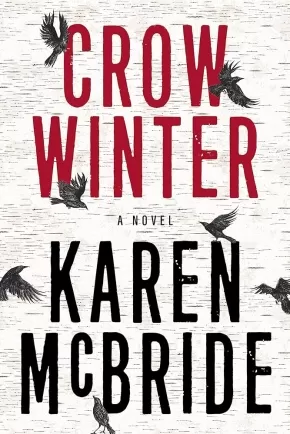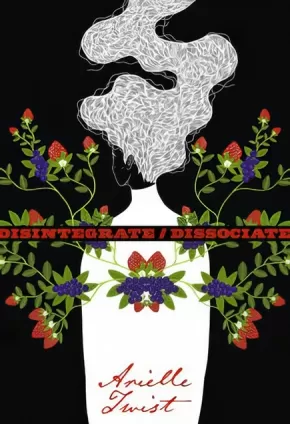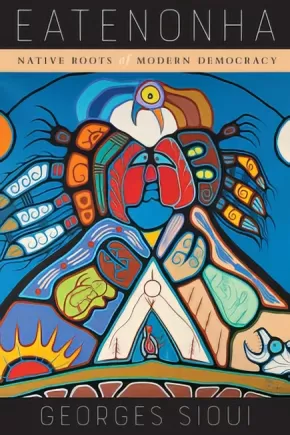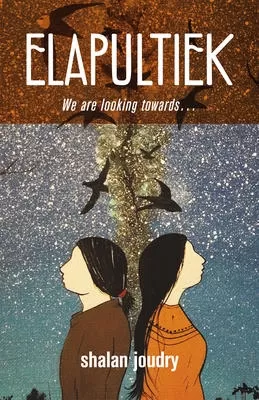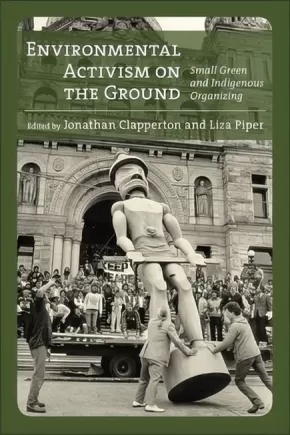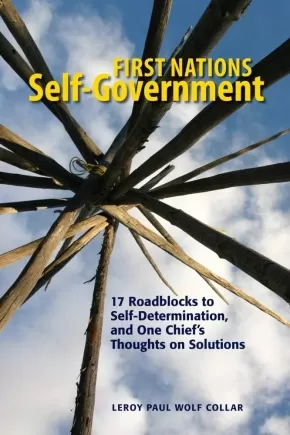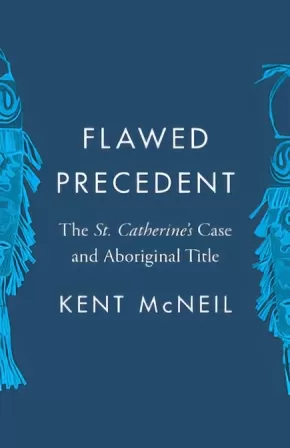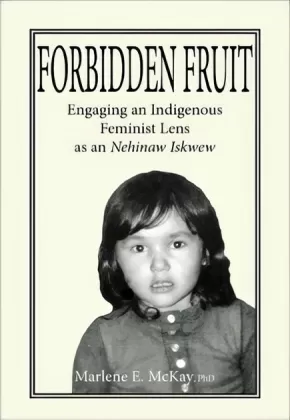Indigenous Peoples in Canada
Synopsis:
Children of God is a powerful musical about an Oji-Cree family whose children were taken away to a residential school in Northern Ontario. The play tells the story of one family: Tommy and Julia, who are trying to survive in the harsh environment of a religious school, and their mother, Rita, who never stops trying to get them back. The impact of this experience on the lives of them all is profound and devastating, yet the story moves toward redemption.
Children of God offers a thrilling blend of ancient traditions and contemporary realities, celebrating resilience and the power of the Indigenous cultural spirit.
Reviews
"Children of God is must-see theatre for Canadians."—Globe and Mail
"Powerful and profound...This is theatre that resonates on a deep emotional level."—Ottawa Citizen
"A significant success...beautiful and very powerful."—Vancouver Sun
Educator Information
A musical by Corey Payette. Contains references to sexual and physical abuse, as well as to trauma and suicide.
Recommended in the Canadian Indigenous Books for Schools 2019-2020 resource list as being useful for students in grades 10-12 for these subjects: Acting, Drama, English Language Arts, Social Studies.
Additional lnformation
80 pages | 5.50" x 8.60"
Synopsis:
Garry Gottfriedson's Clinging to Bone digs into the marrow, heart and soul of the human condition. Looking deeply into the Secwepemc (Shuswap) world of today, he examines betrayal, grief, love and survival. He states, "the broken winged sparrows are lost in flight, surviving starvation in the empty belly of wind." In "Foreigner" he describes how "my skin is the scent of Secwepemcúlucw / a rez Indian, a foreigner / in my own homeland / can you imagine that?" (where "Secwepemcúlucw" means land of the Shuswap). But he also sees humour in the very mechanics of surviving as an Indigenous individual in the Canada of today. His poetry will draw you into love, laughter and sorrow, but leave you contemplating your own survival. A glossary of Secwepemc words is included.
Reviews
"Secwepemc poet, rancher, and teacher Garry Gottfriedson brings themes of identity, environment, and politics in his newest work Clinging to Bone. This collection of poems emerges from Gottfriedson’s journey as a Secwepemc man growing up in his traditional territory. Throughout the work are many beautiful and colourful images of nature. His work explores how land shapes one’s identity and how concepts of home have been altered by settlement and colonialism. Gottfriedson also touches upon many difficult intersections including Residential Schools, church abuses, and environmental destruction. In the end, his work is a (re)affirmation of
Secwepemc sovereignty through narratives of caregiving and relationship to place. Thought-provoking and accessible for high school students, this work is valuable in our schools today." - Canadian Indigenous Books for Schools 2020/2021
Educator Information
Recommended in the Canadian Indigenous Books for Schools 2020/2021 resource list for grades 11 and 12 for English, Creativie Writing, Literary Studies and Social Justice. Also a useful for Teacher Resource.
Additional Information
100 pages | 6.00" x 9.00"
Synopsis:
Cottagers and Indians explores the politics and issues surrounding a real-life event still occurring in the Kawartha Lakes region of Central Ontario. An Indigenous man, Arthur Copper, has taken it upon himself to repopulate the nearby lakes with wild rice, known amongst the Anishnawbe as Manoomin, much to the disapproval of the local non-Indigenous cottagers, Maureen Poole in particular. She feels the plant interferes with boating, fishing, swimming, and is generally an eyesore that brings down the property values of her cottage and those of her neighbours. Drew Hayden Taylor’s thirty-second play is a powerful dramatization of contemporary confrontations taking place between environmentalism and consumerism, Indigenous and non-Indigenous sensibilities.
Reviews
"In Cottagers and Indians, an Anishnawbe man, Arthur Copper, decides to repopulate the lakes of his home Territory with manoomin, or wild rice – much to the disapproval of the local non-Indigenous cottagers, in particular the formidable Maureen Poole. Based on real-life events in Ontario’s Kawartha Lakes region, Cottagers and Indians infuses contemporary conflicts between Indigenous and non-Indigenous sensibilities with Drew Hayden Taylor’s characteristic warmth and humour." - Talon Books
Educator Information
Recommended in the Canadian Indigenous Books for Schools 2019-2020 resource list as being useful for grades 11 and 12 for courses in Arts Education, English Language Arts, Social Studies, and Theatre.
Additional Information
128 pages | 5.50" x 8.50"
Synopsis:
From the author: I cannot let the story of Crow Gulch — the story of my family and, subsequently, my own story — go untold. This book is my attempt to resurrect dialogue and story, to honour who and where I come from, to remind Corner Brook of the glaring omission in its social history.
"These deeply engaging poems — courageous, shrewdly observed, disillusioned — give sharp, prsonal expression to the harsh-beautiful landscape of western Newfoundland, and the human community precariously, stubbornly rooted there." — John Steffler
In his debut poetry collection, Douglas Walbourne-Gough reflects on the legacy of a community that sat on the shore of the Bay of Islands, less than two kilometres west of downtown Corner Brook.
Crow Gulch began as a temporary shack town to house migrant workers in the 1920s during the construction of the pulp and paper mill. After the mill was complete, some of the residents, many of Indigenous ancestry, settled there permanently — including the poet's great-grandmother Amelia Campbell and her daughter, Ella — and those the locals called the "jackytars," a derogatory epithet used to describe someone of mixed French and Mi'kmaq descent. Many remained there until the late 1970s, when the settlement was forcibly abandoned and largely forgotten.
Walbourne-Gough lyrically sifts through archival memory and family accounts, resurrecting story and conversation, to patch together a history of a people and place. Here he finds his own identity within the legacy of Crow Gulch and reminds those who have forgotten of a glaring omission in history.
Reviews
"These deeply engaging poems — courageous, shrewdly observed, disillusioned — give sharp, personal expression to the harsh-beautiful landscape of western Newfoundland and the human community precariously, stubbornly rooted there. A sense of conflict drives through this work, a reflection of the traditional struggle to gain a living from the sea and rocky land but also a raw exploration of the conflict between poverty and privilege, honesty and propriety." — John Steffler, April 2019
"Crow Gulch announces an important poet. The differences Douglas Walbourne-Gough explores between class and ethnicities are as hard as Newfoundland's rock, as shifting as the foundations of a forcibly resettled Crow Gulch. This book is a conversation between a rude landscape, the displaced or dispossessed, and a narrator searching for belonging." — Stephanie McKenzie, April 2019
"Bent low and clund to a coast, Walbourne-Gough lets the land shape him. Brilliant and weathered observation interlaces family and archive to render present and necessary the memory of Crow Gulch. Here is a day's labour, a fretting walk along the tracks, a house 'that lets in snow at the seams,' grandmother's kitchen. Hear still 'her peals of laughter against the far shore and all that lives on in this book.'" — Cecily Nicholson, April 2019
Additional Information
80 pages | 5.50" x 8.50"
Synopsis:
Nanabush. A name that has a certain weight on the tongue—a taste. Like lit sage in a windowless room or aluminum foil on a metal filling.
Trickster. Storyteller. Shape-shifter. An ancient troublemaker with the power to do great things, only he doesn’t want to put in the work.
Since coming home to Spirit Bear Point First Nation, Hazel Ellis has been dreaming of an old crow. He tells her he’s here to help her, save her. From what, exactly? Sure, her dad’s been dead for almost two years and she hasn’t quite reconciled that grief, but is that worth the time of an Algonquin demigod?
Soon Hazel learns that there’s more at play than just her own sadness and doubt. The quarry that’s been lying unsullied for over a century on her father’s property is stirring the old magic that crosses the boundaries between this world and the next. With the aid of Nanabush, Hazel must unravel a web of deceit that, if left untouched, could destroy her family and her home on both sides of the Medicine Wheel.
Reviews
“Full of spirit, love, mystery and good medicine, Crow Winter tells the story of Hazel and one very tricky little crow. Karen McBride’s debut novel ambitiously and successfully balances all these things creating a world and story that will stay with you after you have turned that last page.” - Katherena Vermette, award-winning author of The Break
"Algonquin Anishinaabe writer Karen McBride's debut is about a young woman who moves home to her First Nation reserve after losing her father. Dealing with grief and while memories are flooding her thoughts, Hazel's dreams are disturbed by her trickster kin, a crow, Nanabush.
As she starts to unravel her father's history with a local quarry, the crow is a constant companion and guides her to find the truth. The physical and spiritual worlds are seamlessly woven together, and we are taken inside the experience Hazel is having reconciling her truth with her father's and the imposing facts of the real world.
A lovely story full of spirit and imagery that stays with you long after the final page. Karen is a writer to watch." - Sandy, indieCHOICE
Additional Information
352 pages | 5.50" x 8.50"
Synopsis:
A collection of letter and prayer poems in which an Indigenous speaker engages with non-Indigenous famous Canadians.
D.A. Lockhart's stunning and subversive fourth collection gives us the words, thoughts, and experiences of an Anishinaabe guy from Central Ontario and the manner in which he interacts with central aspects and icons of settler Canadian culture. Riffing off Richard Hugo's 31 Letters and 13 Dreams, the work utilizes contemporary Indigenous poetics to carve out space for often ignored voices in dominant Canadian discourse (and in particular for a response to this dominance through the cultural background of an Indigenous person living on land that has been fundamentally changed by settler culture).
The letter poems comprise a large portion of this collection and are each addressed to specific key public figures--from Sarah Polley to Pierre Berton, k.d. lang to Robertson Davies, Don Cherry to Emily Carr. The second portion of the pieces are prayer poems, which tenderly illustrate hybrid notions of faith that have developed in contemporary Indigenous societies in response to modern and historical realities of life in Canada. Together, these poems act as a lyric whole to push back against the dominant view of Canadian political and pop-culture history and offer a view of a decolonized nation.
Because free double-doubles...
tease us like bureaucratic promises
of medical coverage and housing
not given to black mold and torn-
off siding. Oh Lord, let us sing anew,
in this pre-dawn light, a chorus
that shall not repeat Please Play Again. (from "Roll Up the Rim Prayer")
Reviews
"Rock-solid... full of heartfelt grit and conviction. D.A. Lockhart conjures the world through a catalogue of vivid particulars and a cast of inimitable characters, from Edna Puskamoose, a locally famous Pow-Wow dancer, to James Bond, that internationally notorious 'colonial trickster'. THis is poetry that follows the 'right crooked path' through 'the medicine smoke of history". - Campbell McGrath
Educator Information
Recommended in the Canadian Indigenous Books for Schools 2020/2021 resource list for grade 12 for English Language Arts and Social Studies.
Caution: Mature, foul language used throughout. The term "Indian" is also used throughout.
Additional Information
72 pages | 6.00" x 8.75"
Synopsis:
In her powerful debut collection of poetry, Arielle Twist unravels the complexities of human relationships after death and metamorphosis. In these spare yet powerful poems, she explores, with both rage and tenderness, the parameters of grief, trauma, displacement, and identity. Weaving together a past made murky by uncertainty and a present which exists in multitudes, Arielle Twist poetically navigates through what it means to be an Indigenous trans woman, discovering the possibilities of a hopeful future and a transcendent, beautiful path to regaining softness.
Awards
- 2020 Indigenous Voices Awards Winner for Published Poetry in English
Additional Information
|
Synopsis:
An exploration of the historical and future significance of Canada's Native soul.
Eatenonha is the Wendat word for love and respect for the Earth and Mother Nature. For many Native peoples and newcomers to North America, Canada is a motherland, an Eatenonha - a land in which all can and should feel included, valued, and celebrated.
In Eatenonha Georges Sioui presents the history of a group of Wendat known as the Seawi Clan and reveals the deepest, most honoured secrets possessed by his people, by all people who are Indigenous, and by those who understand and respect Indigenous ways of thinking and living. Providing a glimpse into the lives, ideology, and work of his family and ancestors, Sioui weaves a tale of the Wendat's sparsely documented historical trajectory and his family's experiences on a reserve. Through an original retelling of the Indigenous commercial and social networks that existed in the northeast before European contact, the author explains that the Wendat Confederacy was at the geopolitical centre of a commonwealth based on peace, trade, and reciprocity. This network, he argues, was a true democracy, where all beings of all natures were equally valued and respected and where women kept their place at the centre of their families and communities.
Identifying Canada's first civilizations as the originators of modern democracy, Eatenonha represents a continuing quest to heal and educate all peoples through an Indigenous way of comprehending life and the world.
Reviews
"Eatenonha is a unique interweaving of self, family, First Nation, and Indigenous peoples of the Americas and elsewhere." - John Steckley, Humber College
Educator Information
Recommended in the Canadian Indigenous Books for Schools 2020/2021 resource list for grades 10 to 12 for use in these areas: English Language Arts and Social Studies.
Additional Information
200 pages | 6.00" x 9.00"
Synopsis:
Set in contemporary times, a young Mi'kmaw drum singer and a Euro-Nova Scotian biologist meet at dusk each day to count a population of endangered Chimney Swifts (kaktukopnji'jk). They quickly struggle with their differing views of the world. Through humour and story, the characters must come to terms with their own gifts and challenges as they dedicate efforts to the birds. Each "count night" reveals a deeper complexity of connection to land and history on a personal level.
Inspired by real-life species at risk work, shalan joudry originally wrote this story for an outdoor performance.
Elapultiek calls on all of us to take a step back from our routine lives and question how we may get to understand our past and work better together. The ideal of weaving between Indigenous and non-Indigenous worlds involves taking turns to speak and to listen, even through the most painful of stories, in order for us all to heal. We are in a time when sharing cultural, ecological, and personal stories is vital in working towards a peaceful shared territory, co-existing between peoples and nature.
"It's a crucial time to have these conversations," offers joudry. "The power of story can engage audience and readers in ways that moves them to ask more questions about the past and future."
Additional Information
96 pages | 6.00" x 9.00"
Synopsis:
Environmental Activism on the Ground draws upon a wide range of interdisciplinary scholarship to examine small scale, local environmental activism, paying particular attention to Indigenous experiences. It illuminates the questions that are central to the ongoing evolution of the environmental movement while reappraising the history and character of late twentieth and early twenty-first environmentalism in Canada, the United States, and beyond.
This collection considers the different ways in which Indigenous and non-Indigenous activists have worked to achieve significant change. It examines attempts to resist exploitative and damaging resource developments, and the establishment of parks, heritage sites, and protected areas that recognize the indivisibility of cultural and natural resources. It pays special attention to the thriving environmentalism of the 1960s through the 1980s, an era which saw the rise of major organizations such as Greenpeace along with the flourishing of local and community-based environmental activism.
Environmental Activism on the Ground emphasizes the effects of local and Indigenous activism, offering lessons and directions from the ground up. It demonstrates that the modern environmental movement has been as much a small-scale, ordinary activity as a large-scale, elite one.
Reviews
"Environmental Activism on the Ground succeeds splendidly in complicating and enriching our understanding of modern environmentalism. Focusing on Indigenous and non-Indigenous activists in an impressive range of settings, Jonathan Clapperton and Liza Piper draw together and interpret diverse methodological and conceptual insights in a way that gives new, deserved prominence to those who have strived—and continue to strive—for environmental justice at the local level. These accounts left me both enlightened and heartened. Scholars from across the humanities and social sciences will welcome this volume." - Richard A. Rajala, Department of History, University of Victoria.
Educator Information
Table of Contents:
Illustrations
Acknowledgments
Introduction: In the Shadow of the Green Giants: Environmentalism and Civic Engagements - Jonathan Clappeton & Liza Piper
Part 1: Processes and Possibilities
1. Strategies for Survival: First Nations Encounters with Environmentalism - Anna J. Willow
2. Native/Non-Native Alliances: Challenging Fossil Fuel Industry Shipping at Pacific Northwest Ports - Zoltán Grossman
3. Conserving Contested Ground: Soverigenty-Driven Stewardship by the White Mountain Apache Tribe and the Fort Apache Heritage Foundation - Jon R. Welch
4. From Southern Alberta to Northern Brazil: Indigenous Conservation and the Preservation of Cultural Resources - Sterling Evans
5. Parks For and By the People: Acknowledging Ordinary People in the Formation, Protection, and Use of State and Provincial Parks - Jesica M. DeWitt
Part 2: Histories
6. Alternatives: Environmental and Indigenous Activism in the 1970s - Liza Piper
7. Marmion Lake Generating Station: Another Northern Scandal? - Tobasonakwut Peter Kinew
8. Environmental Activism as Anti-Conquest: The Nuu-chah-nulth and Environmentalists in the Contact Zone of Clayoquont Sound - Jonathan Clapperton
9. Local Economic Independence as Environmentalism: Nova Scotia in the 1970s - Mark Leeming
10. “Not an Easy Thing to Implement”: The Conservation Council of New Brunswick and Environmental Organization in a Resource-Dependent Province, 1969-1983 - Mark J. McLaughlin
11. The Ebb and Flow of Local Environmental Activism: The Society for Pollution and Environmental Control (SPEC), British Columbia - Jonathan Clapperton
12: From Scoieal Movement to Environmental Behemoth: How Greenpeace Got Big - Frank Zelko
Afterword: Lessons from the Ground Up - Jonathan Clapperton & Liza Piper
Bibliography
List of Contributors
Index
Additional Information
752 pages | 6.00" x 9.00"
Authenticity Note: Because this work includes contributions from Indigenous peoples, it has been labelled as containing Authentic Indigenous Text.
Synopsis:
Indigenous Peoples in Canada are continuing to assert their right to self-determination in this era of reconciliation. While dozens of Indigenous communities have signed varying forms of self-government agreements with the federal government, Indigenous Nations still face many obstacles along the path to true self-determination.
As a former Chief of Siksika Nation in southern Alberta, Leroy Wolf Collar dealt with many of the same problems other Indigenous Nations face across the country. From serious housing shortages to the lack of opportunities for youth, Chief Wolf Collar experienced the challenges and frustrations that come from operating in a colonial system still constrained by the Indian Act.
How do Indigenous Peoples move on from this defective system? Chief Wolf Collar identifies 17 issues that currently hinder Indigenous Nations—including broken treaty promises, problems with common forms of band administration, and the intrusion of provincial governments—along with potential solutions to overcome them.
This guide is for current and aspiring Indigenous leaders who want to increase their understanding of good governance, management, and leadership, as well as those who want to explore issues around Indigenous self-determination in Canada.
Educator Information
Recommended in the Canadian Indigenous Books for Schools 2020/2021 resource list for grades 11 and 12 for use in these areas: Law, English Language Arts, and Social Studies.
Additional Information
128 pages | 6.00" x 9.00"
Synopsis:
In 1888, the Judicial Committee of the Privy Council in London ruled in St. Catherine’s Milling and Lumber Company v. The Queen, a case involving the Saulteaux people’s land rights in Ontario. This precedent-setting case would define the legal contours of Aboriginal title in Canada for almost a hundred years, despite the racist assumptions about Indigenous peoples at the heart of the case.
In Flawed Precedent, preeminent legal scholar Kent McNeil thoroughly investigates this contentious case. He begins by delving into the historical and ideological context of the 1880s. He then examines the trial in detail, demonstrating how prejudicial attitudes towards Indigenous peoples and their use of the land influenced the decision. He also discusses the effects that St. Catherine’s had on Canadian law and policy until the 1970s when its authority was finally questioned by the Supreme Court in Calder, then in Delgamuukw, Marshall/Bernard, Tsilhqot’in, and other key rulings.
McNeil has written a compelling and illuminating account of a landmark case that influenced law and policy on Indigenous land rights for almost a century. He also provides an informative analysis of the current judicial understanding of Aboriginal title in Canada, now driven by evidence of Indigenous law and land use rather than by the discarded prejudicial assumptions of a bygone era.
This book is vital reading for everyone involved in Aboriginal law or title, legal historians and scholars, and anyone interested in Indigenous rights in Canada.
Additional Information
224 pages | 5.50" x 8.50" | 10 b&w photos, 4 maps
Synopsis:
Based on recorded interviews and journal entries this major biography of Cecil Paul (Wa’xaid) is a resounding and timely saga featuring the trials, tribulations, endurance, forgiveness, and survival of one of North American’s more prominent Indigenous leaders.
Born in 1931 in the Kitlope, Cecil Paul, also known by his Xenaksiala name, Wa’xaid, is one of the last fluent speakers of his people’s language. At age ten he was placed in a residential school run by the United Church of Canada at Port Alberni where he was abused. After three decades of prolonged alcohol abuse, he returned to the Kitlope where his healing journey began. He has worked tirelessly to protect the Kitlope, described as the largest intact temperate rainforest watershed in the world. Now in his late 80s, he resides on his ancestors’ traditional territory.
Following upon the success of Wa'xaid's own book of personal essays, Stories from the Magic Canoe, Briony Penn's major biography of this remarkable individual will serve as a timely reminder of the state of British Columbia's Indigenous community, the environmental and political strife still facing many Indigenous communities, and the philosophical and personal journey of a remarkable man.
Additional Information
376 pages | 6.00" x 9.00"
Synopsis:
Forbidden Fruit: Engaging an Indigenous Feminist Lens as an Neninaw Iskwew is a feminist based memoir acknowledging that people are measured, categorized, and placed in a hierarchal order that is deeply influenced by discourses predicated upon social processes.
Dr. McKay’s Indigenous feminism is about being aware that due to the colonial patriarchy that has seeped through Indigenous social and cultural systems, Indigenous women are positioned differently in economic, social and political structures. Marlene masterfully uses her own life experiences to assert that colonialism and Indigenous cultures obscure the role of women in a way that continues both their marginalization and the binary of the princess/squaw (p. 11).
Additional Information
98 pages | 6.00" x 9.00"
Synopsis:
“This night in Oppenheimer Park Dan asked me to shit-kick this chick in the face as she owed money and I said no because I didn’t know who she was and I wasn’t about to play with fire so he sat on the bench then stood up and did a flying kick twice to her chin and she convulsed and passed out he said he didn’t want to spill blood because she had HIV…”—“Tales”
Dissecting herself and the life she once knew living in Vancouver’s Downtown Eastside as a bonafide drug addict, Blanchard writes plainly about violence, drug use and sex work in Fresh Pack of Smokes, offering insight into an often overlooked or misunderstood world.
Reviews
“Reading Cassandra Blanchard’s debut poetry collection Fresh Pack of Smokes feels like, to borrow a phrase from her work, someone “poured a bucket of blood” on your head. Such visceral images flood the pages of Blanchard’s autobiographical stories, pulling readers in with humanizing force.” - Emma Cooper, The Tyee
Educator Information
Recommended in the Canadian Indigenous Books for Schools 2019-2020 resource list as being useful for grade 12 students for the following subjects: English Language Arts, Social Justice.
Contains foul and sexual language, graphic content, violence, interpersonal abuse, and drug use, which may be disturbing to some readers.
Additional Information
96 pages | 5.50" x 8.00"




